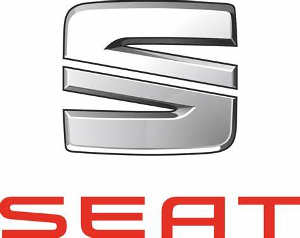Motor Trade Manufacturer Set To Be Discontinued

Motor trade industry members may be interested to learn that one of the most globally renowned automobile brands is facing discontinuation.
The Volkswagen group unveiled the significant development that it would cease production of its Seat vehicles at the Munich Motor Show. However, a selection of its beloved models will find a new home on the motor trade dealers’ forecourt under a different banner.
During his speech at the event, Volkswagen’s Chairman, Thomas Schafer, confirmed the group’s commitment to increase investment in the brand once the current Seat models have been phased out.
For customers in the United Kingdom, information has yet to be disclosed regarding the future of existing Seat motor dealerships in the region. There is no need to speak to your local private or motor trade insurance providers just yet.
Seat Models Look Set To Evolve
In the wake of this decision, several models will undergo a transformation and be reintroduced under the Cupra brand in the coming years. While some Seat models, like the Ibiza supermini, will bid farewell, the Leon hatchback is slated for a rebranding as a Cupra vehicle.
Recent news reports suggest that although the Seat name may vanish from the realm of vehicle manufacturing, it may find a new identity in the realm of e-scooters. Volkswagen’s choice to retire Seat from its current role within the group stems from the belief that the Cupra brand possesses significantly greater earnings potential.
In his speech, Schafer clarified that this decision had no connection to any issues with the Spanish government, which had jointly founded Seat in 1950.
“There are no problems with the government”, Schäfer said on the decision to move away from Seat, adding that Spanish customers had responded well to Cupra.
He followed on further to say that Cupra was the fastest-growing brand in Europe. Schafer explained, “Wheels had been set in motion for Cupra to take Seat’s role long ago. It had always been a long-term brand, but Cupra’s success had cemented the thinking that this was the right thing to do.
“There had been debate about trying to reinvigorate Seat, but the brand had a history of making losses, and ultimately, Cupra’s greater earning potential cemented the decision.
“I think it was the right decision in hindsight, but it’s a gamble. I’ve seen lots of new names come up and go, but this was a good decision. Cupra is bigger than Alfa Romeo and Polestar, so not just new brands but also old ones.”

A History of Seat Vehicles
Seat is a Spanish motor trade manufacturer with a storied history that traces back to the 1950s when it operated as a partially state-owned enterprise. In 1953, Seat marked its debut in the automobile world with the production of the SEAT 1400. Over the years, it earned a prominent position in the European automotive landscape.
Throughout the 1970s and 1980s, Seat diversified its range of models and gradually transitioned to designing and manufacturing its own vehicles, independently of its initial partnership with Fiat. This period marked a pivotal phase in Spain’s burgeoning industrial prowess, with Seat playing a crucial role in the nation’s economic growth.
In 1986, the Spanish government relinquished its ownership of Seat, selling it to the German automotive juggernaut, the Volkswagen Group, which acquired a controlling interest in the company.
In the ensuing years, it evolved into a vital player within the Volkswagen Group, producing various vehicles encompassing compact cars, sedans, and SUVs. Iconic models like Leon and Ibiza first made their debut during this era.
In the 2010s, Seat continued its expansion efforts, bolstering its presence in the European market with offerings like the Ateca and Tarraco. Additionally, they ventured into the realm of electric vehicles and hybrids, further solidifying their place in the automotive industry.







